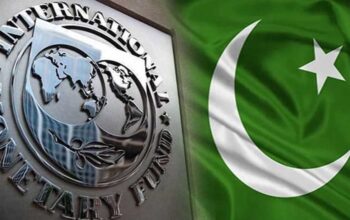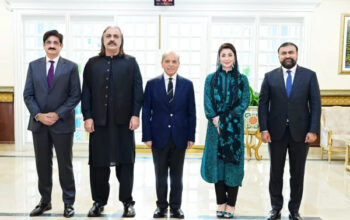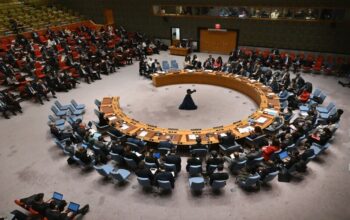Although the two sides agree Pakistan’s budget for the current fiscal is broken, there is a yawning gap over how much fresh revenue Islamabad needs to raise to bridge the fiscal gap. By Muhammad Ali.
ISLAMABAD: Pakistan’s Minister for Finance Ishaq Dar has so far refused to budge before the immense pressures of the visiting International Monetary Fund (IMF) review mission to impose 17 percent GST on POL products or increase GST from 17 percent to 18 percent across the board.
The Fund fielded its mission only after Islamabad had conceded two of its major conditions by free floating the rupee and rolling out fuller impact of a federal levy on petroleum – which caused fossil fuel prices rise, with petrol and high-speed diesel prices rising PKR 35 a litre and kerosene and light diesel by PKR 18 a litre.
This is the 9th review of the Fund’s Extended Fund Facility (EFF) program, originally signed up by former Prime Minister Imran Khan. The 7th and 8th reviews were clubbed together and completed just ahead of the current fiscal’s budget on the watch of former Finance Minister Miftah Ismail.
The 9th review was originally due in November 2022 but has faced delays on account of a difference of opinions between the Fund and Dar, who took over the Ministry from Ismail in September.
Pakistan and the IMF are set to hold policy-level talks next week from Tuesday in a bid to revive the stalled USD 6.5 billion IMF program. The Fund staff are expected to share their version of nine key data tables comprising the macroeconomic and fiscal framework for the current fiscal year to pin down the exact internal and external financing gaps facing the country’s economy.
According to the Fund staff assessment, Pakistan needs PKR 800 billion – equivalent to 0.9 percent of the country’s Gross Domestic Product (GDP) – to keep the budgeted primary deficit on track even after a PKR 472 billion waiver on account of emergency spending in the wake of last monsoon’s cataclysmic floods.
The Fund believes Pakistan needs to bridge the gap through additional revenue measures including bringing POL products under the general sales tax (GST) regime. The Pakistani sides own estimate of the fiscal gap comes to around 0.4 to 0.5 percent of GDP.
In other words, although Pakistan and the Fund staff agree the government has gone off budget, they are deadlocked over the magnitude of the deviation and therefore the size of a minibudget to offset the spending overrun.
The Ministry of Finance has also made massive adjustments to macroeconomic framework to align it with the ground realities of the Pakistani economy in the wake of the flooding disaster and exogenous shocks from the war in Ukraine.
Pakistan has cut the real GDP growth rate target from 5 percent to the vicinity of 1.5 to 2 percent, and jacked up CPI based inflation target for the current fiscal year from 12.5 percent to 29 percent.
The government is also leery of inflationary measures as it is headed into the election season, and fears exceeding the public’s threshold of pain at a time when inflation is already roaring at the highest level since 1973.
In the month of January 2023, year-on-year headline inflation touched 26.7 percent and SPI index reached 34.49 percent. That was before the full impact of the recent hike in pump prices had reached the market.
The upcoming round of parleys will determine how Ishaq Dar plans to resist the imposition of 17 percent GST on POL products under the proposed prescription of the IMF to fill the financing gap.
The Finance Minister is obviously constrained by Pakistan’s dwindling foreign exchange reserves, which have slid to around USD 3 billion – barely enough to cover a month of imports. The situation is further complicated by that fact that Pakistan’s bilateral lenders are not prepared to help out the country outside the framework of IMF assistance.
Notwithstanding the yawning gulf of differences over how to proceed, the government has repeatedly said it intends to close the IMF program successfully, and the Fund has said it is alive to Pakistan’s challenging economic situation, complicated by a difficult external environment.
Copyright © 2021 Independent Pakistan | All rights reserved




